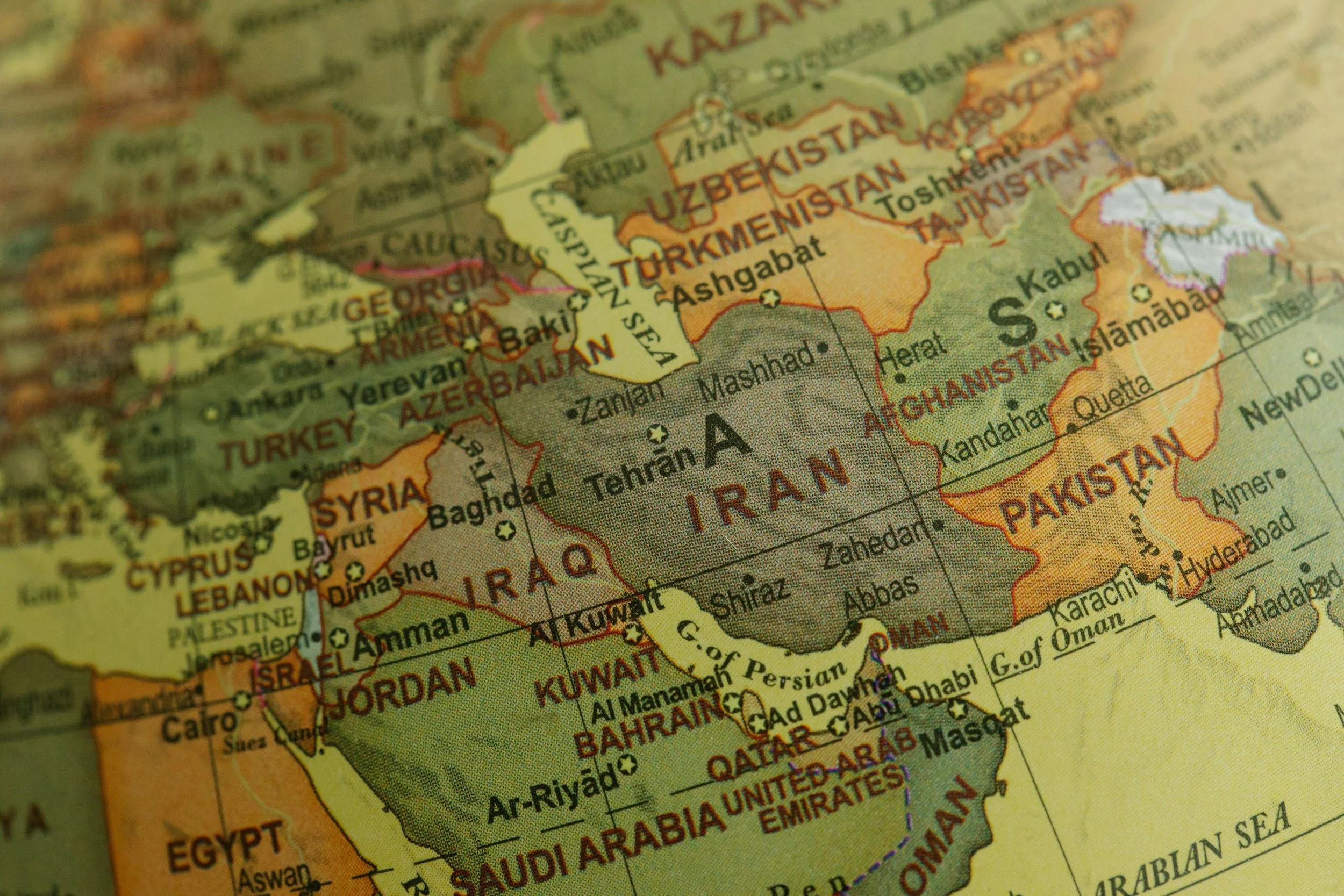The Global and Economic Implications of War in the Middle East
On June 21, the U.S. military carried out a series of coordinated strikes against several Iranian nuclear facilities, signaling a major shift in the United States’ Middle East policy.(1)
Federal Reserve Chair Jerome Powell Reacts to Middle East Conflict
Federal Reserve Chair Jerome Powell told reporters that central bank officials are monitoring the situation, saying, “What’s tended to happen is when there’s turmoil in the Middle East, you may see a spike in energy prices, but it tends to come down.”2
“Those things don’t generally tend to have lasting effects on inflation, although, of course, in the 1970s they famously did because you had a series of very, very large shocks.”2
Historically, we can point to the Iranian Revolution, which caused global oil production to fall substantially and then contributed to already-high gas prices as a result of the Arab oil embargo following the Yom Kippur war.2
Powell seemed assured there isn’t a risk of a similar scenario occurring, claiming that the US economy is far less dependent on foreign oil than it was back in the 1970s.”2
The Strait of Hormuz: “One of the World’s Most Important Oil Chokepoints”
The Strait of Hormuz, which connects the Persian Gulf to the Gulf of Oman, is “one of the world’s most important oil chokepoints,” according to the US Energy Information Administration.(2)
In 2024, an average of 20 million barrels of oil passed through the waterway per day, which amounts to approximately 20% of global petroleum liquids consumption.(2)
Although the US is considered energy independent, gas prices and energy costs would increase dramatically if the Strait of Hormuz was closed.(2)
Why Blocking the Strait of Hormuz Is Unlikely
There is speculation that Iran likely doesn’t have the ability to completely block the strait, and doing so may be damaging for its own energy exports.(1)
But as the Houthis demonstrated in the Red Sea, a few targeted attacks can have lasting effects: raising insurance rates, diverting shipping, and more.(1)
Such a scenario could send global energy prices soaring and intensify the conflict, potentially drawing in Saudi Arabia and the United Arab Emirates by disrupting an important aspect of their economies.(1)
However, blocking the Strait of Hormuz could prove to be disastrous for Iran and its neighbors, along with the global economy as a whole.(1)
As events unfolded, the oil market clearly didn’t expect the worst. On June 22, the price for Brent crude momentarily exceeded $81 per barrel, but quickly fell again. On June 24, after the ceasefire between Israel and Iran was announced, Brent crude was at about $68 per barrel, less than the price before the conflict.(1)
Ceasefire Announced Between Israel and Iran, Potential Effects on China and U.S. Relations
After nearly two weeks of attacks between Israel and Iran, the President made the controversial decision to authorize U.S. strikes on three Iranian nuclear facilities.(3)
Two days later, Trump announced that he had brokered a ceasefire between Israel and Iran.(3)
Notably, the Middle East has become an important market and site of diplomacy for China. There is speculation that the U.S. backing of Israel “will only intensify the trend of China leaning towards the Arab states and linking regional instability to the United States and Israel.”(3)
Trump Administration Seeks for Taiwan to Increase Defense Spending
Tensions around Taiwan have been on the rise in recent years, as Beijing has stepped up political and military pressure towards its reunification with mainland China.(3)
A majority of countries do not recognize Taiwan as an independent country, including the U.S.; however, the U.S. officially opposes the use of force by Beijing to claim Taiwan and provides Taiwan with defensive military capabilities.(3)
But Trump Administration officials have recently demanded Taiwan to increase its defense spending to as much as 10% of its gross domestic product, as part of an overall push for the U.S.’ partners to spend more on their own defenses.(3)
“Israel-Iran Conflict Was ‘a Stage’ for U.S. and China’s Contrasting Approaches”
China’s current strategy of non-involvement contrasts sharply from the interventionist approach the U.S. adopted decades before Trump.(3)
The conflict between Iran and Israel could be viewed as somewhat of a stage for China and the U.S. to demonstrate their contrasting visions for global leadership.(3)
“The U.S. has demonstrated its military capabilities, its commitment to allies, and its influence in crisis management. But these are not the metrics by which China measures its global role.”(3)
Article Sources:
(1) Pavel K. Baev, Robert Einhorn, Sharan Grewal, Samantha Gross, Ryan Hass, Patricia M. Kim, Elizabeth N. Saunders, Yun Sun, Caitlin Talmadge, Shibley Telhami, and Andrew Yeo. “The global implications of the US strikes on Iran,” Brookings. Accessed July 7, 2025, https://www.brookings.edu/articles/the-global-implications-of-the-us-strikes-on-iran/. July 1, 2025.
(2) Buchwald, Elisabeth. “America’s economy could face a war shock,” CNN. Accessed July 7, 2025, https://www.cnn.com/2025/06/19/economy/americas-economy-war-shock. June 19, 2025.
(3) Jeyaretnam, Miranda. “What the Israel-Iran War and Ceasefire Mean for China’s Relations With the U.S. and World,” Time. Accessed July 7, 2025, https://time.com/7298254/china-us-diplomacy-military-intervention-taiwan-israel-iran-war-ceasefire/. June 27, 2025.

